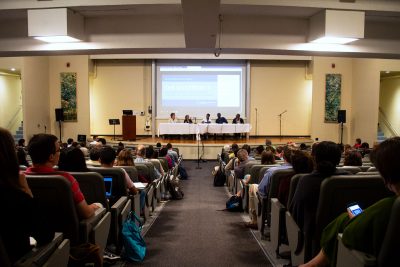
Boston University’s Howard Thurman Center hosted its first student-faculty forum of the 2019-2020 academic year Tuesday with a panel on The New York Times 1619 Project.
The 1619 Project was an initiative that aimed to recognize the 400th anniversary of the beginning of slavery in America while also acknowledging the ongoing ramifications from slavery in modern society.
The event featured four panelists: Paula Austin, assistant professor of history and African American studies, Michelle Johnson, associate professor of journalism, Nina Silber, professor of history and American and New England studies, and Michael Holley, associate professor of journalism. It opened with each panelist discussing their takeaways from the project, before opening up the discussion to the student-filled audience.
Silber said she believed this project was especially important in that it anchored slavery as one of the pillars of America’s foundation, ensuring the topic of slavery is no longer dismissed as an irrelevant event that took place hundreds of years ago.
“What’s important about this project, for all Americans and for the BU community, is how it puts slavery at the center of many of the institutions, ideas, and values that emerged in the course of US history,” Silber said. “As a country, we have had trouble fully reckoning with slavery and its impact, which makes this project particularly important.”
Silber went on to acknowledge the way in which this project allows topics as large as the 1619 Project to feel more approachable for a larger, more diverse American audience.
“As a historian, I was familiar with many of the ideas put forth in the 1619 Project,” Silber said, “but I was also impressed at the way the project made those ideas accessible, and gave them such a wide-ranging platform.”
Austin spoke on the importance of holding student-faculty forums and the overall impact it can have on the BU community.
“So I think for me, the benefit is the participation and the building of an intellectual community that is looking at these historical moments and origin stories, [and] the ways in which they inform our contemporary moment,” Austin said.
Caroline Bowdan, a sophomore in the College of Arts and Sciences, said she thinks the discussion was a great way to bring students together and a way to bring awareness to The New York Times’ project.
“It’s a way to gain some knowledge from [professors] that you wouldn’t necessarily get in a structured class,” Bowdan said. “They can’t just do one paper or one project.”
Amy Arellano, a senior in Sargent College of Health and Rehabilitation Sciences, said she thought BU should continue holding forums discussing topics like the 1619 Project because the history it addresses still impacts students today.
“I think we should be addressing issues like the 1916 Project just because it indirectly does affect a lot of the BU student community,” Arellano said. “I think it’s important to educate individuals on events that happened in history so we’re more aware, more conscious and more knowledgeable.”
Aile Chang, a sophomore in the College of General Studies, said she thinks forums on topics like the 1619 Project bring awareness to race issues BU should discuss.
“It’s good to even recognize now that racism is still a prominent issue,” Chang said. “I think that BU should continue. Even though they’re a majority white school, they should still recognize those students of color.”
Julian Maldonado, a sophomore in CAS, said he thinks the event would have created a larger impact if there was more advertising surrounding it.
“Most people didn’t know about this,” Maldonado said. “There wasn’t awareness. It wasn’t advertised.”
Mohish Agrawaa, a sophomore in CAS, thought the event touched on important topics in U.S. history, something he would like to know more about as in international student.
“Being an international student, I almost have no knowledge about what went down in history with racism, slavery, or discrimination,” Agrawaa said. “It’s a reminder of history, and it’s important for all of us to know.”






















































































































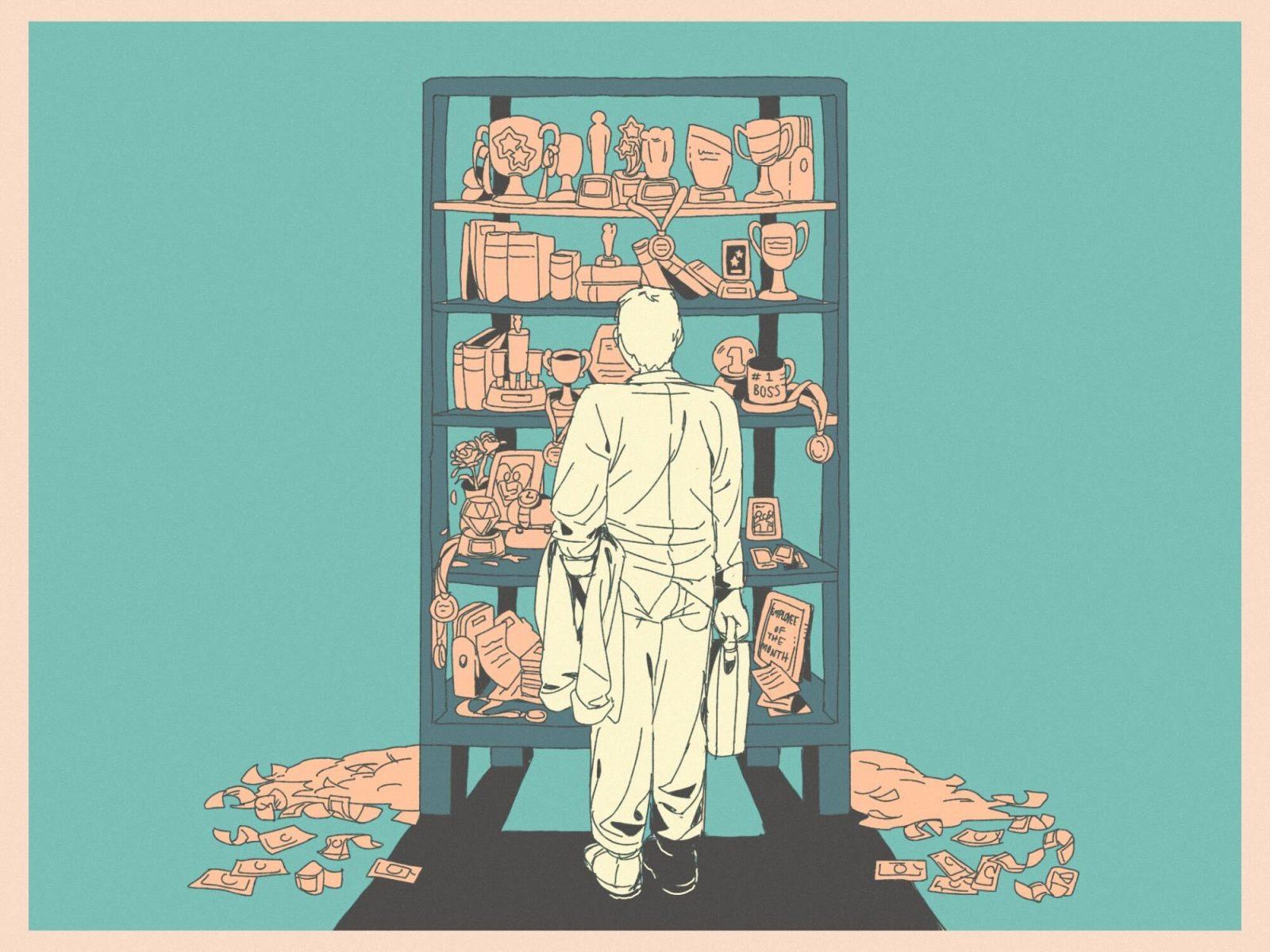


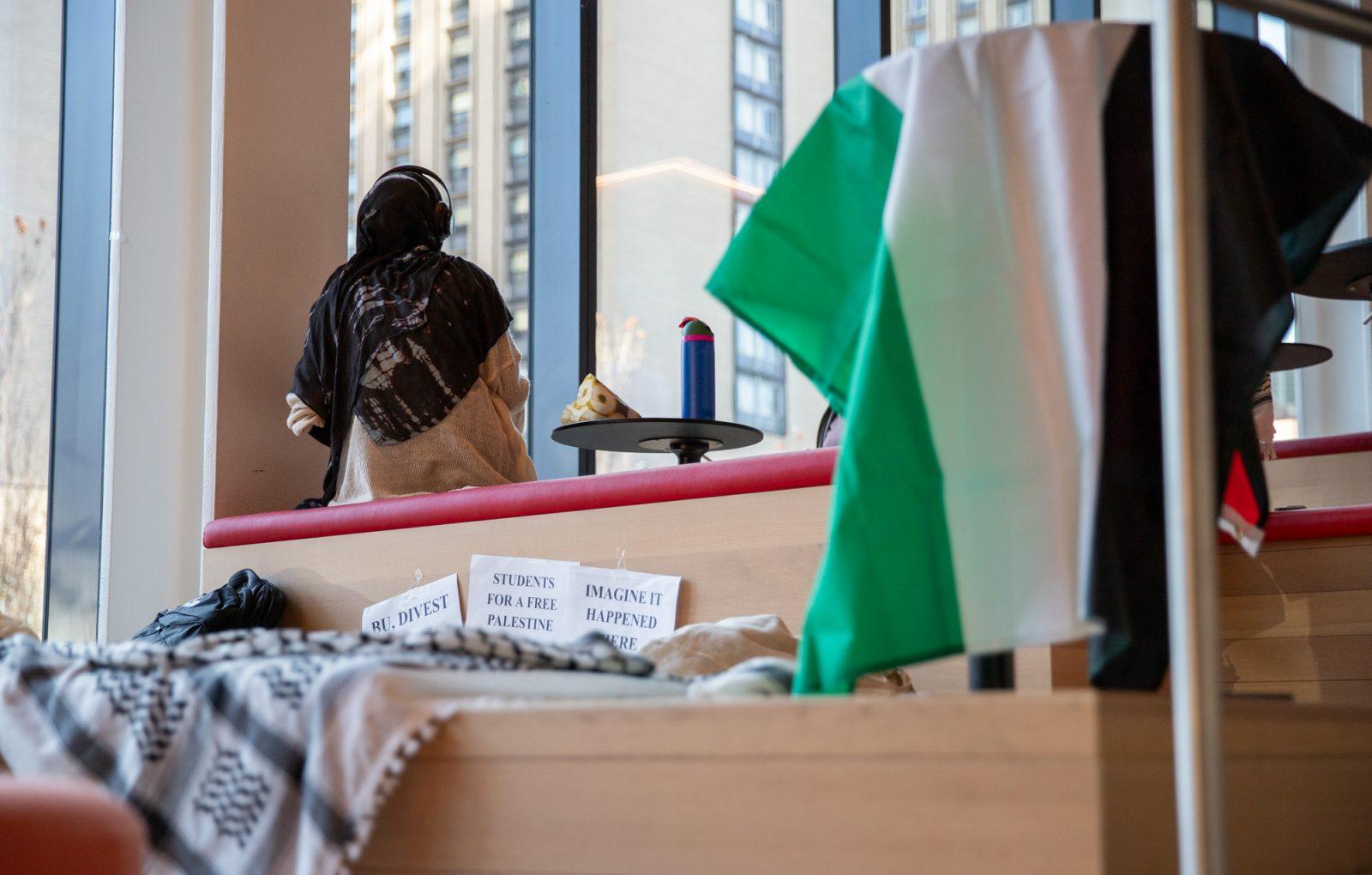
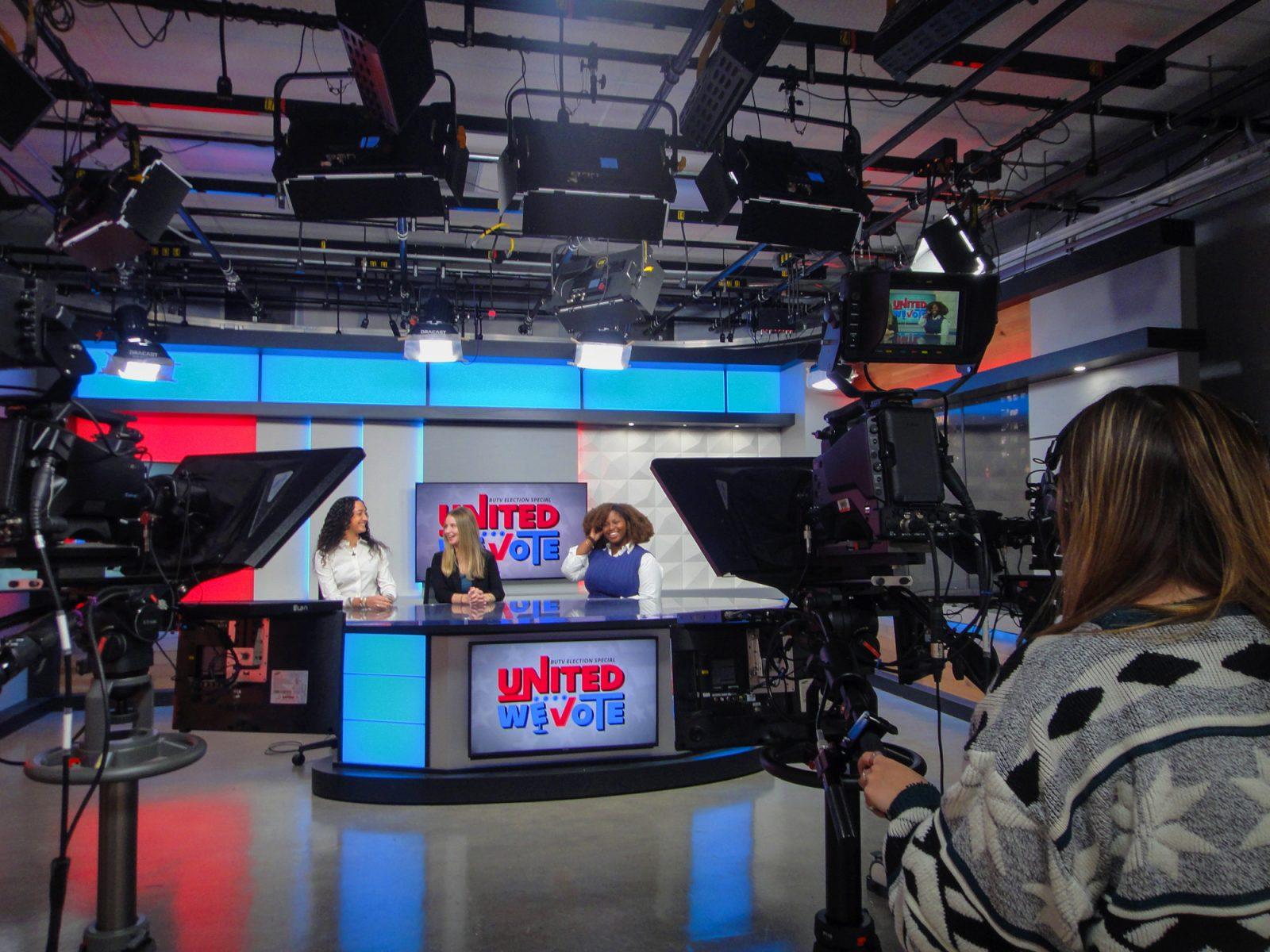
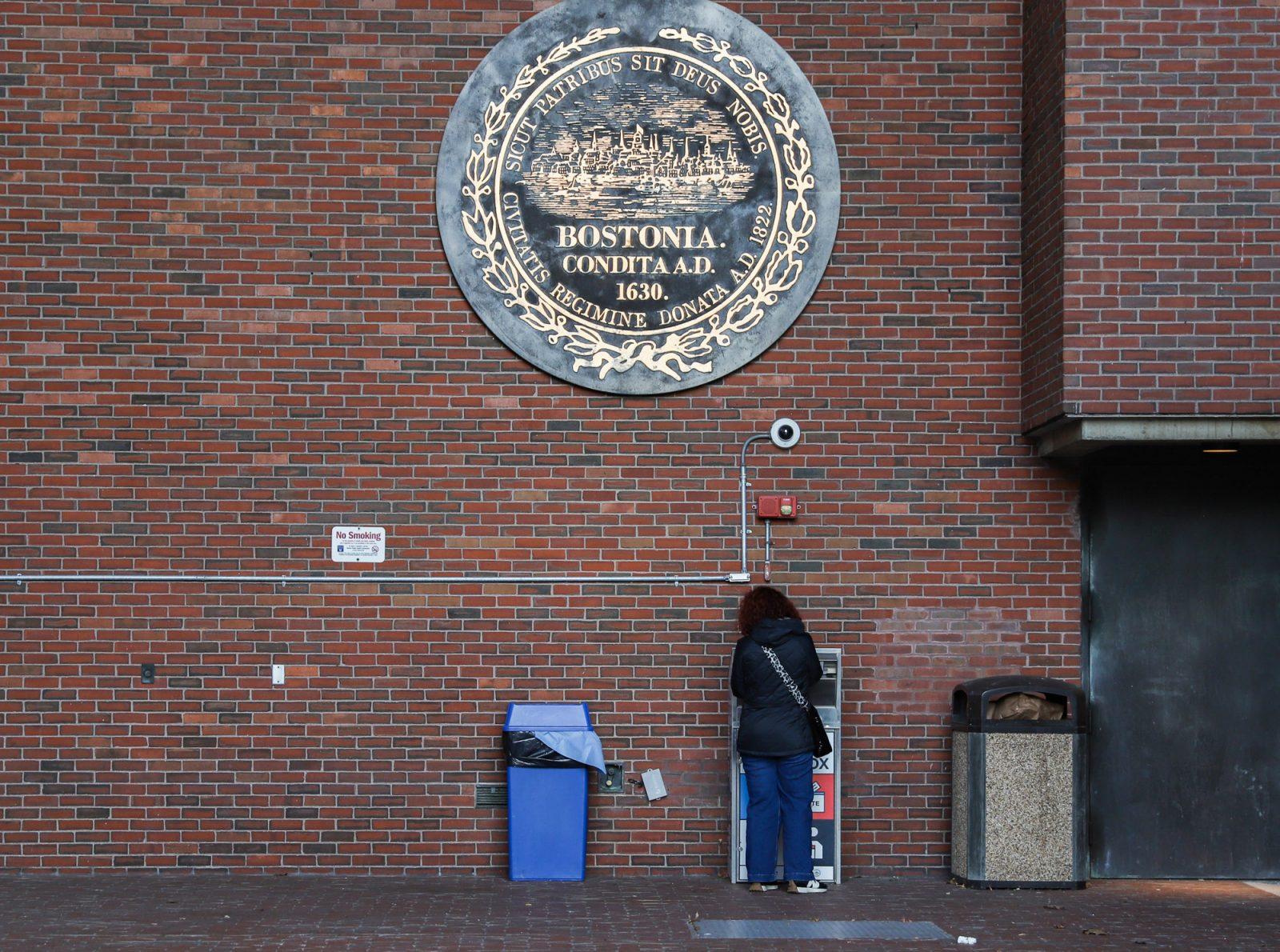


Pedro Falci • Sep 25, 2019 at 8:15 am
“Most people didn’t know about this,” Maldonado said. “There wasn’t awareness. It wasn’t advertised.”
That’s a false characterization.
The Howard Thurman Center sent emails to EVERY student, faculty and staff on the Charles River and Medical campuses on both Thursday, September 19 and Monday, September 23. It was on BU Today’s newsletter and home page on Tuesday, September 24. It was on the HTC’s three social media platforms. It was on a flyer on every dormitory bulletin board.
Students should take some ownership and read their emails. It’s impossible to cater to 32,000 ways of receiving information.
Moriah • Sep 25, 2019 at 1:27 pm
I agree. I think some people at BU just aren’t as aware of events at the htc such as these because they don’t usually gravitate to these forums and discussions they believe they’re “not advertised”. The event was well advertised and that was reflected in the turn out.